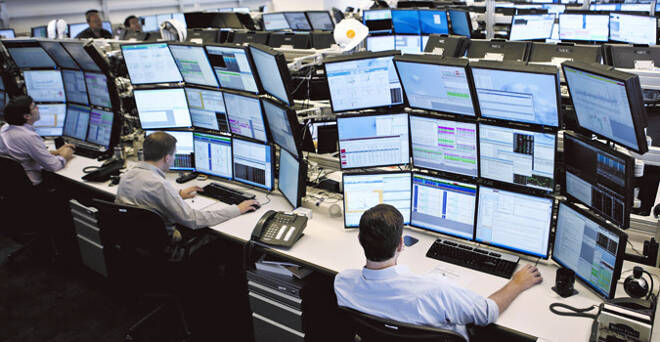Advertisement
Advertisement
The ECB & The Euro Are Boring Traders
By:
S&P 500 traded at record level last week at 2,170 sending the VIX to a 2 yr low at 11.4. The US 10 yr yield reached a post-Brexit high of 1.62%. The
S&P 500 traded at record level last week at 2,170 sending the VIX to a 2 yr low at 11.4. The US 10 yr yield reached a post-Brexit high of 1.62%. The ECB held rates steady this week but comments from Mario Draghi regarding ‘public backstops’ for European banks sent gold from $1,310 to $1,330 on Thursday.
[wibbitz]b1c91aeb1205042d8ab68f7d54299a3a1[/wibbitz]
The post-Brexit blues continued as the British pound declined further against other major currencies on Friday.
The decline of the composite Purchasing Managers Index to 47.7 this month from 52.4 in June, its lowest level since April 2009, was the first evidence that Britain was entering a downturn, according to Samuel Tombs of Pantheon Macroeconomics.
“If the PMI remains at July’s level in August and September, it will be consistent on past form with a 0.4 per cent quarter-on-quarter decline in GDP” in the third quarter, said Tombs.
The pound sterling was down 0.9 per cent against the US dollar at $1.3123 and down 0.9 per cent against the yen at 139.21, while the euro was up 0.4 per cent against the pound at 83.71 pence.
Euro traders are sending Mario Draghi a clear message: Monetary policy is reaching a dead end.
Just look at how the world’s most-traded currency pair has done this year. Its 200-day moving average has been stuck around $1.10, and it has registered the smallest move of any of the major currencies. All the while, Draghi and the European Central Bank delved deeper into negative interest rates and more aggressive bond-buying — policies that might typically debase the euro.
ECB officials, and central bankers from industrialized nations worldwide have admitted monetary easing has its limits in reviving growth and inflation. By contrast, when the ECB first slashed its deposit rate below zero in June 2014, it triggered about a 20 percent slump in the euro during the next nine months.
US Stock Market
For the first time in two months, it’s been technology and commodity stocks — not utilities or household goods makers — that have led the S&P 500 Index as it climbed in the 12 days since earnings season began. Computer and software companies were the best group in the five days that just ended, too, powering the benchmark gauge for American equity to a record and its fourth straight weekly advance.
Gains of 15 percent or more in companies like EBay Inc. and Chesapeake Energy Corp. warmed the hearts of bulls looking for evidence that it’s more than just low bond yields behind equities’ strength; particularly as corporate results are reported. The advances came as S&P 500 companies showed signs of breaking a four-quarter-long decline in sales, fueling optimism that a long-awaited rebound in earnings is at hand.
“The economic data we’re seeing from the U.S. has contributed a lot and has fortified the belief that the market can hold itself,” said Bill Schultz, who oversees $1.2 billion as chief investment officer at McQueen, Ball & Associates Inc. in Bethlehem, Pennsylvania. “Earnings season is bringing out a bit more optimism and that’s taking us away from those defensive names that we saw move earlier post-Brexit.”
About the Author
Barry Normanauthor
Advertisement
